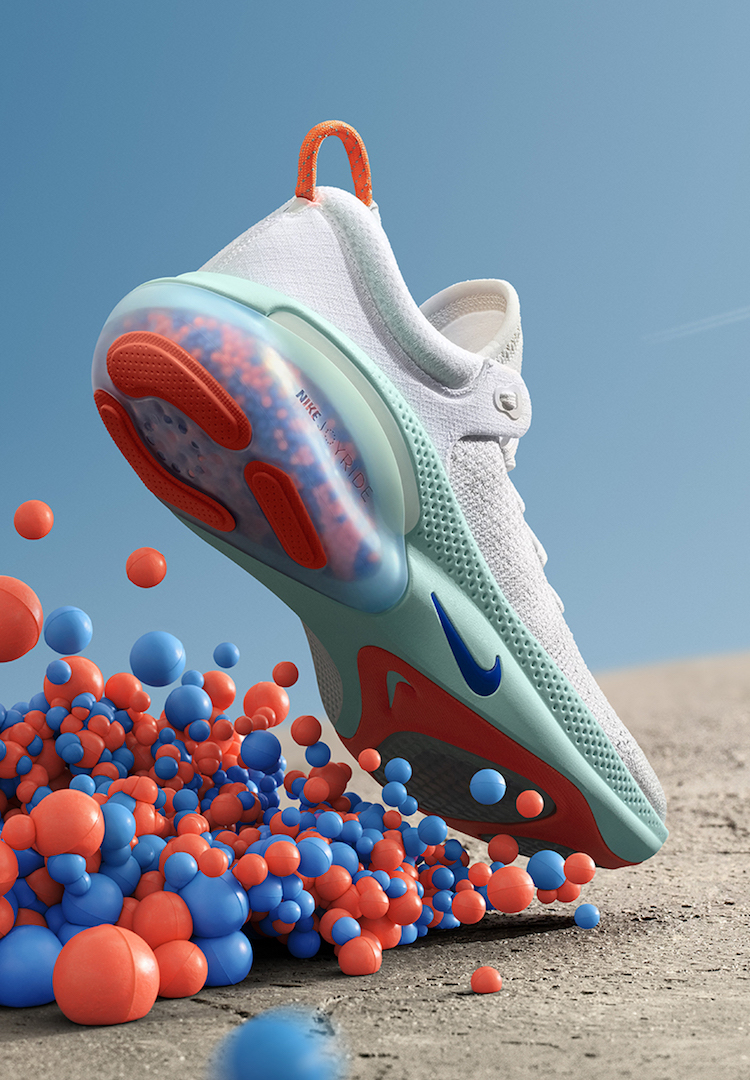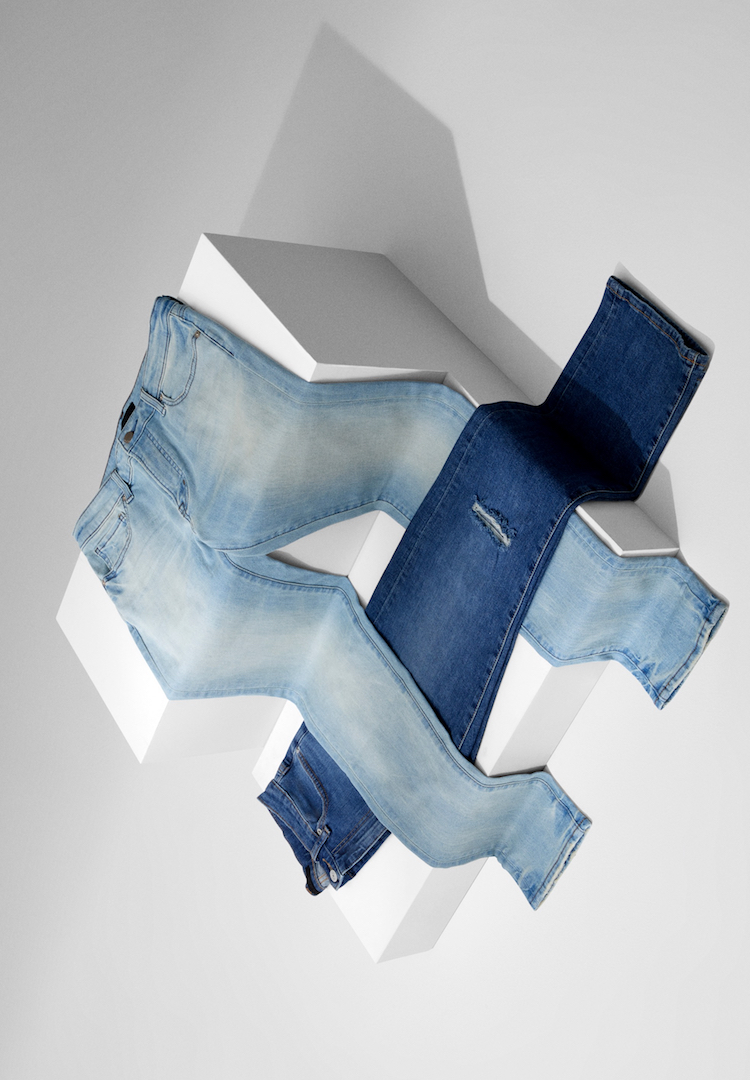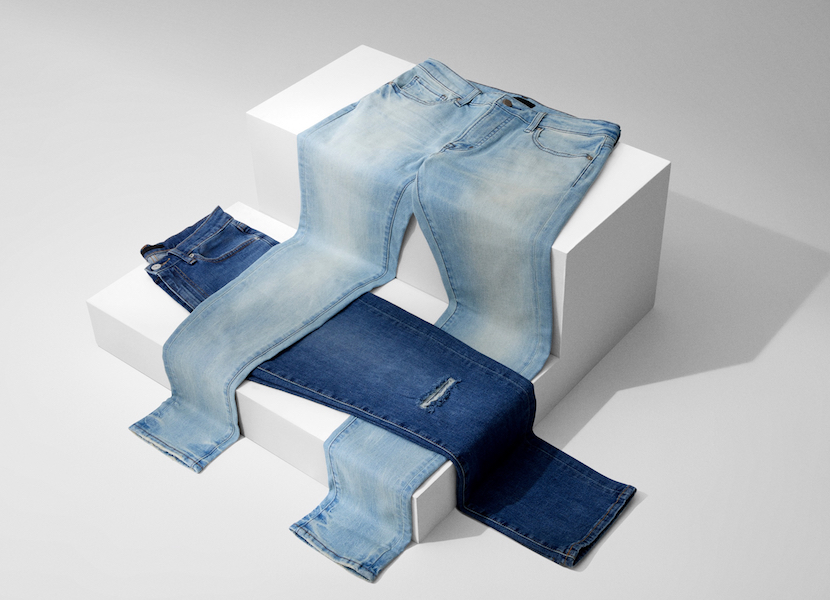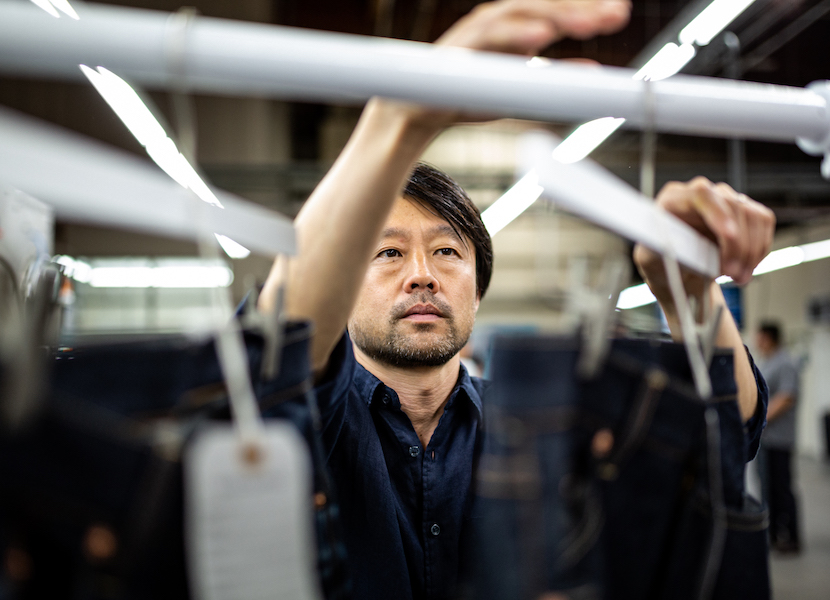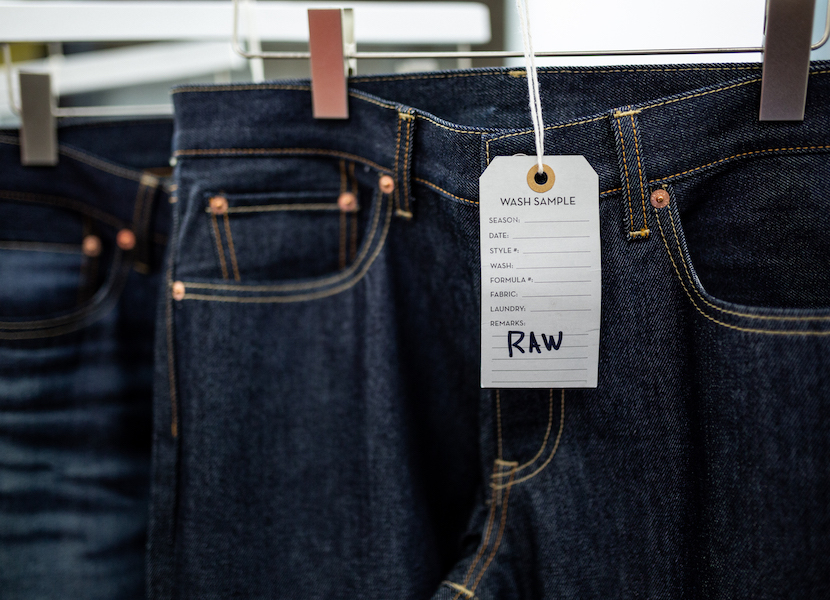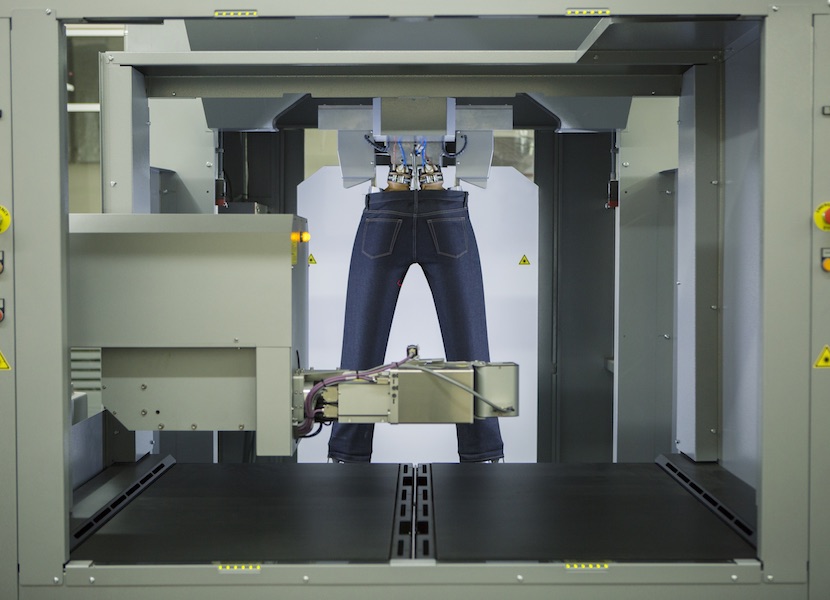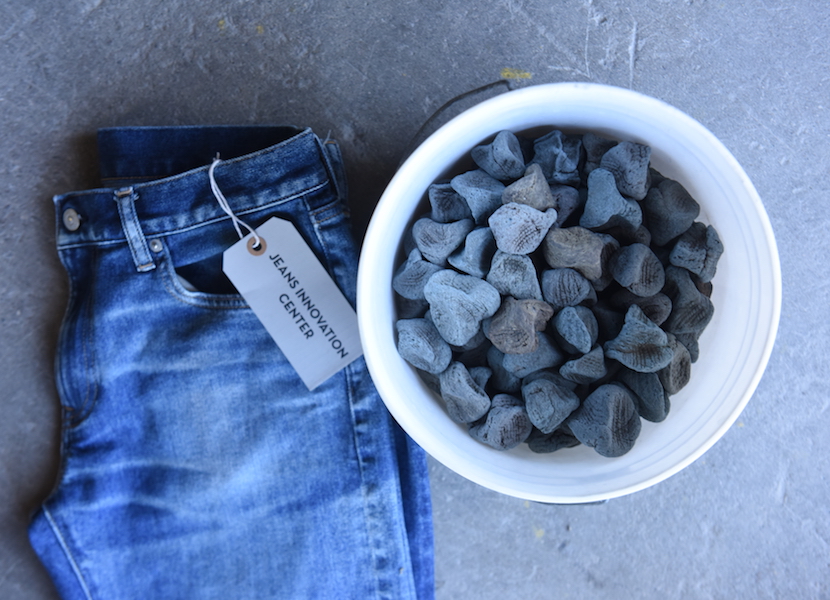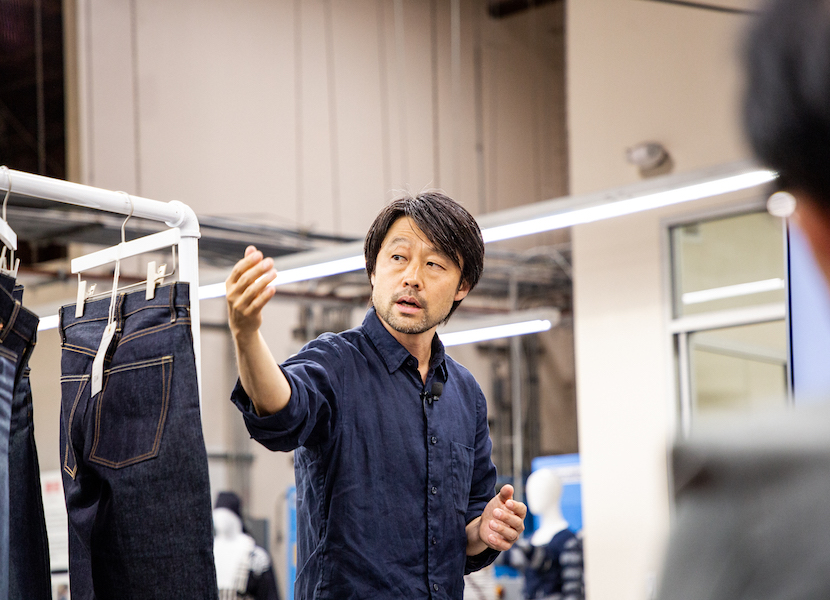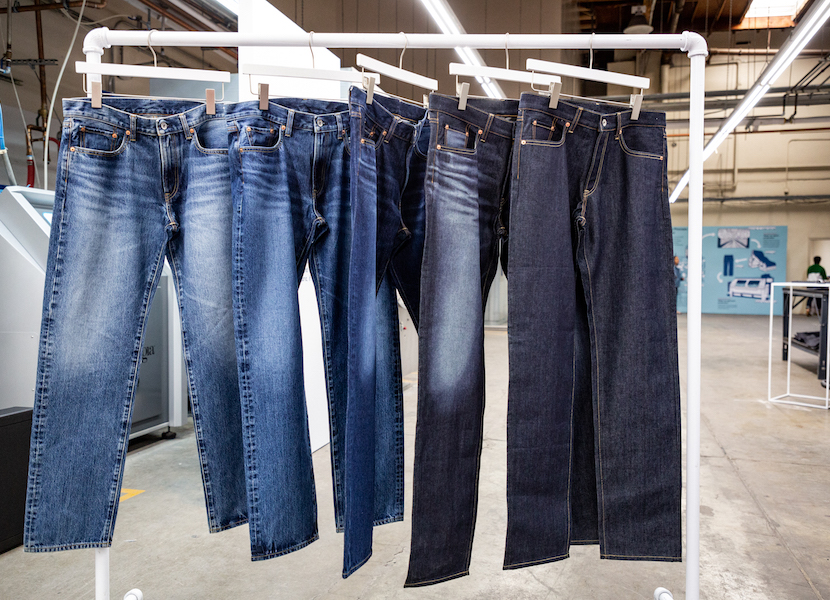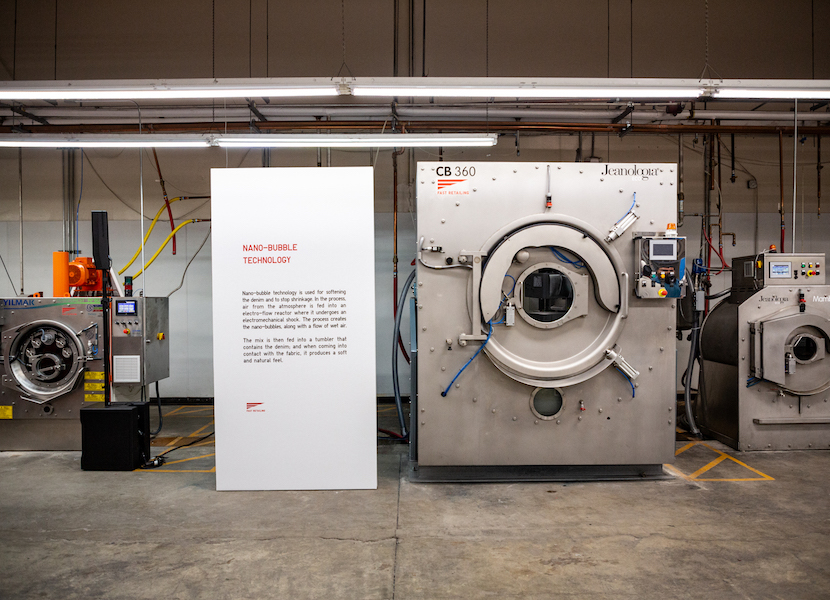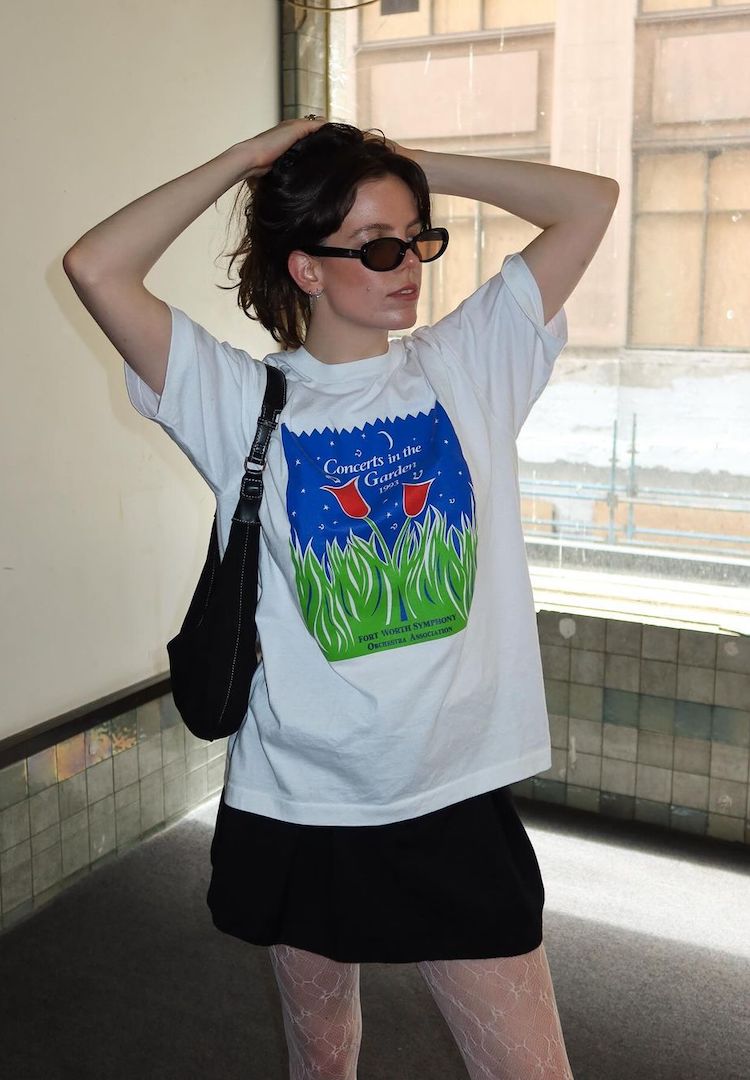Behind the Curtain: How UNIQLO is advancing sustainable denim
Words by Bianca O’Neill
COVER IMAGE SHOT BY JESPER HEDE
COVER IMAGE STYLED BY JAM BAYLON AT PARTISAN
And encouraging others to do the same.
As the shift toward more sustainable practices continues throughout the fashion industry, UNIQLO is well and truly keeping pace. The global giant has introduced a new technology that has seen the retailer reduce wastewater in the production of its jeans by an average of 90 per cent. But it’s not the only innovation in the space.
On a recent visit to UNIQLO’s Jeans Innovation Centre (JIC) in Los Angeles, global media were treated to a behind-the-scenes look at this new process, which is set to change denim manufacturing from top to (snug) bottom.
Reducing water use by 90% on average
Little known to many, there is huge water wastage that takes place during traditional denim manufacturing processes. This is largely due to the continuous wash cycles that raw denim has to undergo in order to achieve the different levels of wash colour or to create a worn, ‘vintage’ look.
Over the last four years, UNIQLO’s Jeans Innovation Centre has been testing new washing processes in an attempt to reduce this wastage. The answer? A combination of nanobubbles (almost like high-force steam) and water-free ozone gas cleansing.
On average, production at the JIC is now using 90 per cent less water, with some of these new washing processes reducing the water footprint by up to 99 per cent. Interestingly, they developed this new process using existing technology not specifically made for denim manufacture. The manufacturers of these machines are learning along with UNIQLO how to retrofit their technology into this new process, allowing other producers to use the water-saving measures as well.
“The JIC was built from our desire to make denim more sustainable,” shares COO of the Jeans Innovation Centre, Masaaki Matsubara. “We are always thinking about design with sustainability in mind… We never intended to reduce water used for jeans washing by only 10 per cent or 20 per cent. Ultimately, we want to reduce water usage to near zero. Only this can be considered true innovation.”
Laser technology aiding in sustainability goals
One of the worst aspects of denim manufacturing for workers has traditionally been the controlled destroy processes. That is, the physical roughing-up of the fabrics in order to lend a ‘vintage’ look to your favourite denim.
In the past, UNIQLO workers have used harmful chemicals to physically wear away layers of denim, as well as sanding processes that threw off blue denim ‘dust’ into the air. Not only did these processes take time, but the workers often left their shifts covered in this potentially harmful ‘dust’.
UNIQLO’s new technology has now seen its workers retrained and upskilled to work with laser machines. Graphic designs modelled off real vintage denim are input into these laser machines, with the lasers then ‘destroying’ each pair of jeans within minutes. This process is fascinating to watch; a laser works its way down each leg removing thin layers of denim, then uses super-quick controlled burning to open up vintage-looking rips and tears. Not only does it take mere minutes (compared to hours of physical labour), but it also produces very little waste by-product.
Another aspect of controlled denim destruction is stone washing, used to achieve a faded mottled effect on the final product. Traditionally, natural pumice stones were used for stone washing. However, these stones only last around two washes and disintegrate into contaminated water waste, making them far from environmentally friendly.
UNIQLO, however, has now introduced a new, artificial “eco-stone”; one which mimics the effect of pumice, without creating stone powder waste.
Combined with the water reduction techniques and laser technology mentioned above, this eco-stone is making a massive impact in the sustainable production space. UNIQLO is now on target to have its entire denim range run through the new technology by 2020, with some of the retailer’s men’s styles having already been produced in this way since 2018.
As UNIQLO continues to set environmental and sustainability goals across its huge global retail footprint, it will become an increasingly guilt-free alternative to fast fashion brands that tend to push trend-driven purchases. This is particularly so in light of its claim that UNIQLO jeans will not change in price with the introduction of the new technology.
“Our ambition is to redefine what sustainability means in the apparel industry,” says UNIQLO Director of Sustainability, Veronique Roche. “We want to make sustainable choices effortless and anxiety-free for our customers everywhere, and to leverage the scale of our business to have genuine meaning and impact.”
And that impact is, of course, only growing. So here’s to the future of sustainable denim, at a price everyone can afford.
Bianca was hosted at the Jeans Innovation Centre in Los Angeles by UNIQLO.

